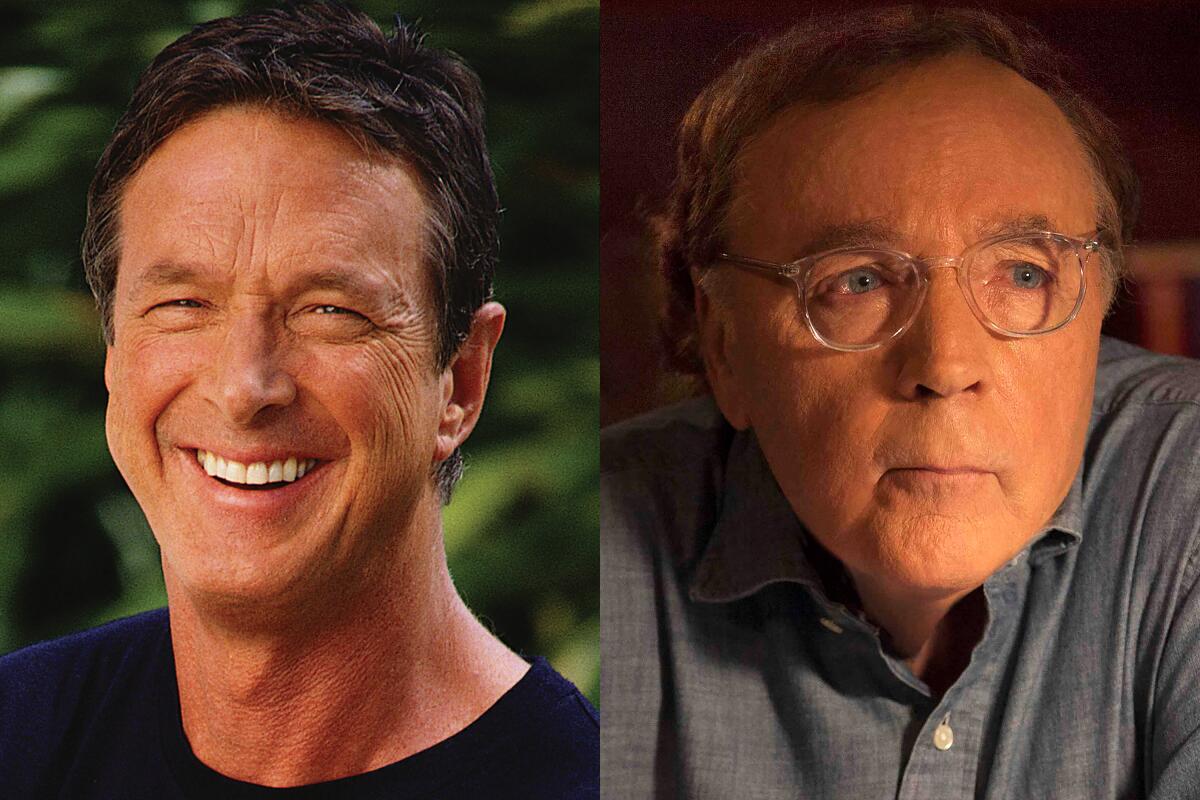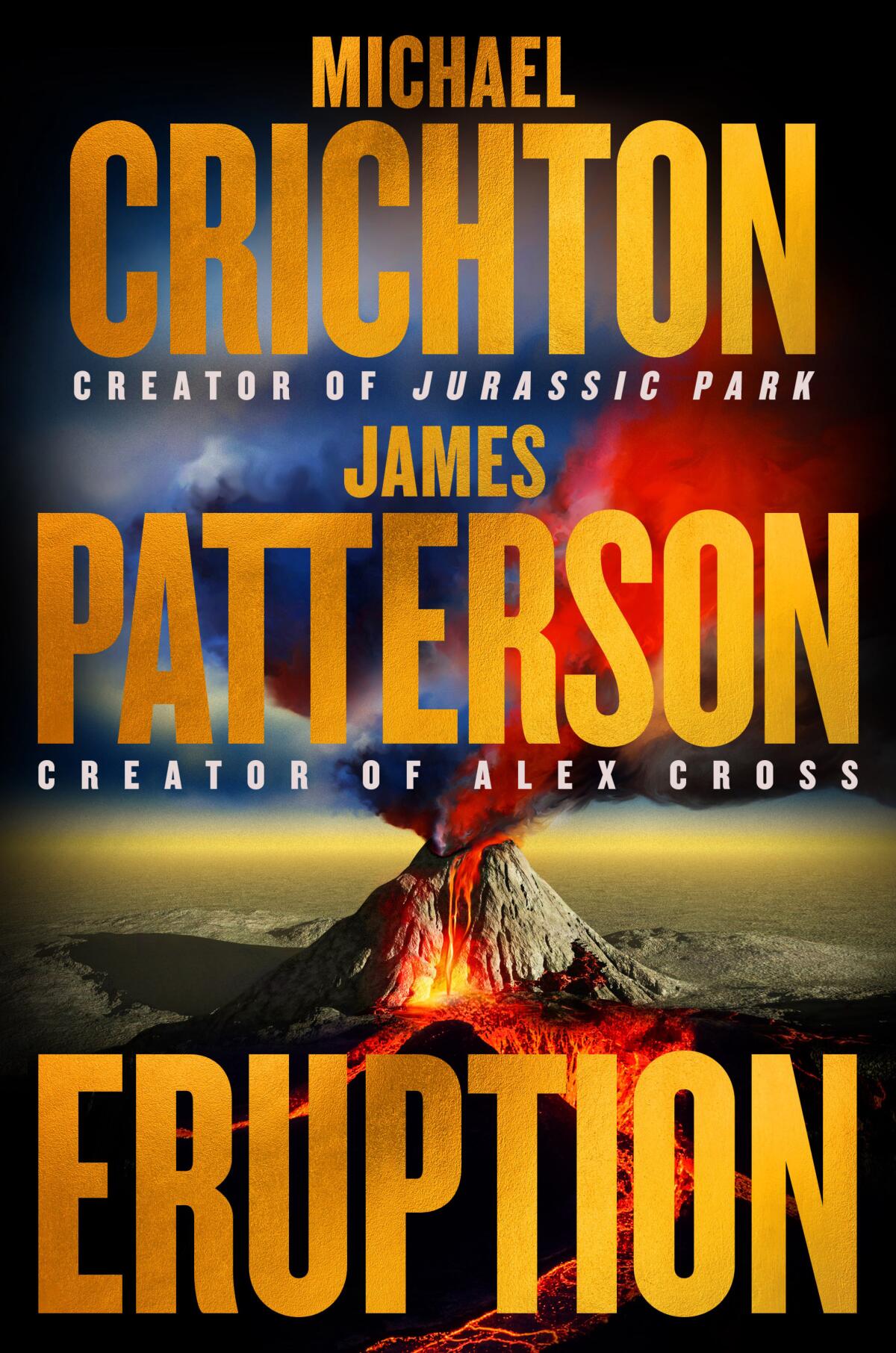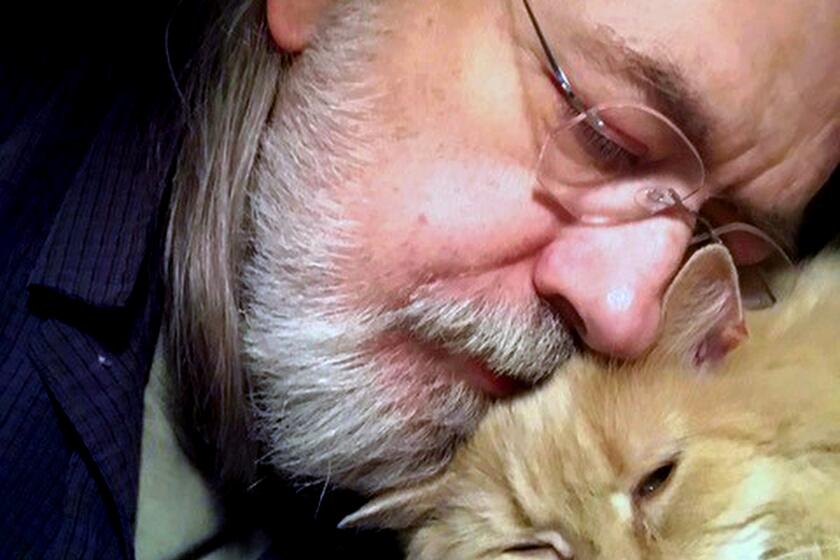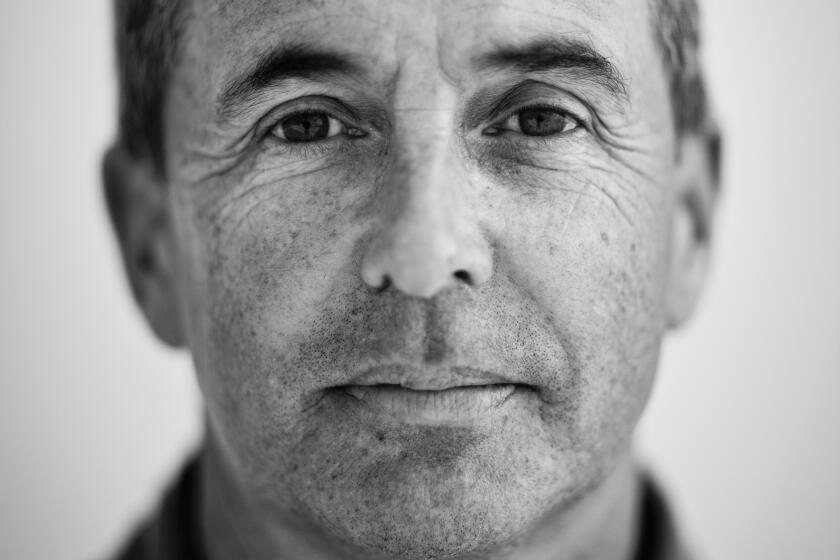James Patterson realized Michael Crichton’s vision for a volcano thriller 16 years after his death

- Share via
On the Shelf
Eruption
By Michael Crichton and James Patterson
Little Brown and Company: 432 pages, $32
If you buy books linked on our site, The Times may earn a commission from Bookshop.org, whose fees support independent bookstores.
Michael Crichton, the mega-selling author and filmmaker best known for the novel “Jurassic Park,” died of lymphoma in 2008. But a glance at his body of work suggests he has remained prolific even after his death, with a string of posthumously published novels (the last of which, “Dragon Teeth,” was released in 2017) and a sequel to his bio-thriller “The Andromeda Strain” arriving in 2019, written by Daniel H. Wilson but still bearing Crichton’s name, in big letters, on the front cover. His afterlife has been busy.
Now he’s collaborating — not with some young hotshot looking to make a name in publishing, but with an author whose books have sold hundreds of millions of copies and whose name might be a bigger brand than his. James Patterson, who has worked on books with everyone from Bill Clinton to Dolly Parton, has teamed up with Crichton as coauthor of “Eruption,” a volcano thriller set on the Big Island of Hawaii. The novel boasts traits familiar to any Crichton fan, including ample technical research, breakneck pacing and humans pushing the world toward extinction through scientific hubris.
Caleb Carr, a military historian and bestselling author of “The Alienist,” made his last book a touching memoir of life and love with a feline companion.
With two of publishing’s most popular (and wealthy) authors on the marquee, “Eruption” is this summer’s literary version of a blockbuster action movie.
“I needed the money,” Patterson quipped in a recent video interview, before pivoting to what really brought him to “Eruption.” “I was a big Michael Crichton fan. I think I’ve read everything that he’s written. And when he died, it’s one of those things where you just wish, ‘Oh, no, no, please. I want another book.’ Like you wanted one more Hitchcock movie after he died.”

The process actually began with Crichton’s widow, Sherri. Looking through his archives shortly after his death, she found a partial manuscript for a volcano novel set in Hawaii, a place Crichton first came to love when he moved to Los Angeles from the East Coast to pursue his filmmaking career. He had told her about his plans for “Eruption” during their long hikes on the trails of Kauai.
They had also visited Pompeii, the ancient Italian city buried under volcanic ash and pumice when Mt. Vesuvius erupted in AD 79. When Sherri found the manuscript and other research including video Crichton shot near the top of Mauna Loa, Earth’s largest active volcano, she knew she had something — if she could find the right writer to carry out Crichton’s vision.
“I knew it required somebody of Michael’s magnitude, with his great storytelling skills and the ability to keep the pace up and keep the cliffhangers going,” she said alongside Patterson on the video call. “We needed somebody to really be able to finish the story, to take it from where it had stopped and to the finish line so we could live it and breathe it.”
Oscar Wilde once remarked that one should always judge by appearances.
She and her business partner tossed some names around. Then she had an idea: “What about James Patterson? I mean, if we’re going to go big, let’s go really big. Let’s go to the top.” Patterson signed on and started doing his own research, with the help of a volcanologist. And he began writing, picking up where Crichton left off, trying to create a unified writing voice that didn’t show seams on the page.
This posed a challenge. Crichton and Patterson may have a lot in common, particularly the ability to weave a ripping yarn that keeps the pages turning fast, but they’re different writers. “I’m a little pacier, maybe,” Patterson said, “maybe a little more of a wisecracker, dialogue-wise.” And Crichton likes to get lost in the scientific weeds; “Eruption” offers details on everything from lava temperatures to a fly’s digestive system. But “Eruption” doesn’t read like a stitched-together Frankenbook, a science experiment out of, well, a Crichton novel. It hits its beats, shows off its research and retains Patterson’s sense of humor.
The premise is classic Crichton: cautionary, speculative, happy to walk the line between far-fetched and vaguely plausible. It’s 2025, and Mauna Loa is fixing to blow, something that can be very destructive: the 1868 eruption killed 77 Hawaiians and brought landslides and a tsunami. The good news is that the lava is projected to head toward an unpopulated region of the island. The bad news is that the military has used the mountain to store vast amounts of radioactive herbicide. Hey, it could happen. It’s up to caustic, can-do geologist John MacGregor and a team of scientists, soldiers and island residents to prevent a good old fashioned extinction-level event.
Don Winslow reveals why his latest novel, ‘City in Ruins,’ the final installment in the Danny Ryan series, will be his last.
The novel is laden with Hawaiian language, lingo and culture. Here we learn that if something makes you “ho’opailua,” you want to throw up. “Michael loved the people of Hawaii,” Sherri Crichton said. “He loved the culture of Hawaii. He loved the Aloha spirit. He was very respectful. It was really important to him because Hawaii is this gorgeous petri dish of nature.”
But in a Crichton novel, that petri dish must be messed with.
“If the human influence gets in there, it can absolutely be weaponized,” she said. “And that’s the story that Michael and Jim tell with this book.”
For Patterson, Crichton’s scientific bent was a major appeal — a frontier he hadn’t yet crossed.
“I liked the challenge of writing with science, which I hadn’t done before,” Patterson said. “I usually just make [stuff] up. So this was just very exciting for me.”
More to Read
Sign up for our Book Club newsletter
Get the latest news, events and more from the Los Angeles Times Book Club, and help us get L.A. reading and talking.
You may occasionally receive promotional content from the Los Angeles Times.








